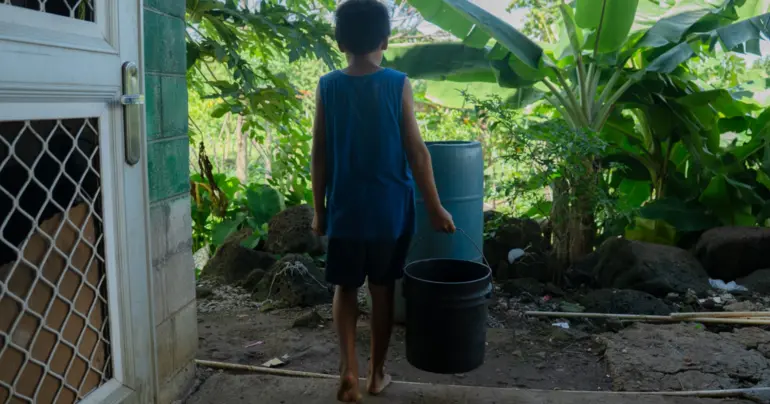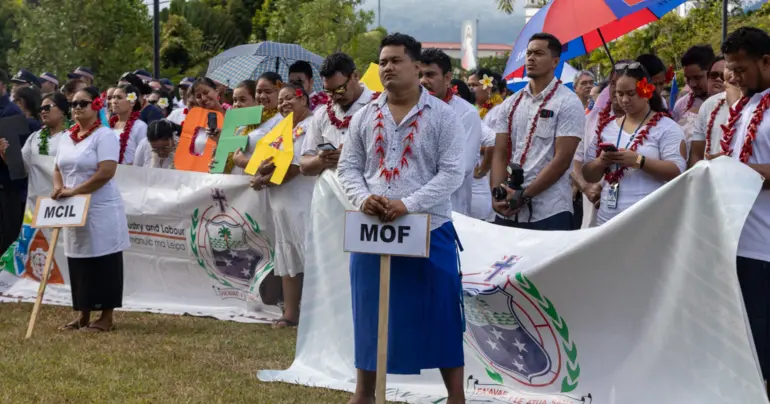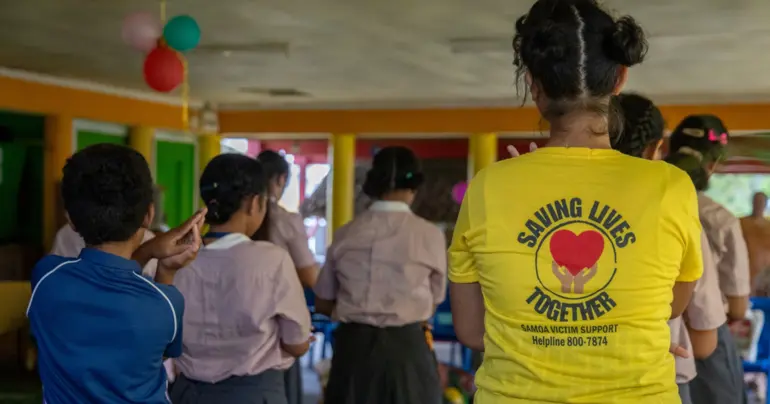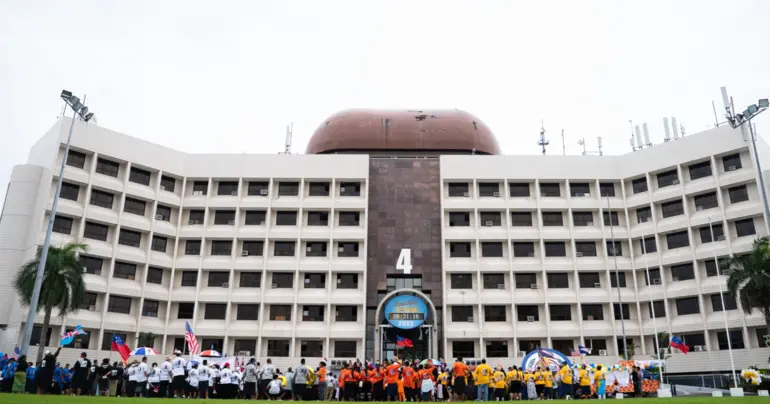The church's role in nation building
His Grace, the Archbishop of Samoa Father Mosese Vitolio Tui, spoke powerful words during the ava ceremony at Saint Therese Tofamamao, Leauvaa on Wednesday. With the ordination, the Catholic Church has begun a new chapter of leadership.
"Who am I? For the past few days leading up to this moment, I have seen God in the wind, our surroundings, our families, and also our Archdiocese. You've all been doing so much despite your financial circumstances," he said.
"I've seen God in my family from Safotu, from Safai, and Falefa. From this morning with our Mass to this hour, there has always been wind blowing here. Who am I, that this village (Safotu) is sitting in the sun? Who am I that they had to travel far to come? They are kings and high chiefs of Samoa and on this side the highest people in our Church. Who is Mosese that the Archdiocese has to sit in the sun this evening?"
It is self-reflection and homage to those who have come to witness the ordination. It is also reasoning on why he was chosen to lead the Catholic Church in Samoa. The choosing of an Archbishop is not a simple process.
The ultimate decision in appointing bishops rests with the pope, and he is free to select anyone he chooses. But how does he know whom to select? The process for selecting candidates for the episcopacy normally begins at the diocesan level and works its way through a series of consultations until it reaches Rome.
The followers of the Catholic faith had anticipated this moment after the passing of the late Archbishop Alapati Lei Mataeliga. We congratulate His Grace on his ordination and look forward to him guiding one of the biggest churches in this country.
The churches in Samoa have a deeply rooted responsibility in nation-building. Be it the Catholic Church or any other denomination, they have to foster the values of Christianity in the communities they look after.
Churches need not be involved in politics but can play an integral role in building a good society. They have the power to guide people, promote non-violence, keep people away from crime, and greed and urge leaders to be transparent and accountable.
This nation faces an array of social problems which the churches can help eliminate. It was good to see His Grace in his address on Wednesday recognise the financial circumstances of families and the obligations that they have been required to meet.
That is one important area that can be looked at by the churches in Samoa. People should not be obligated to go beyond their means. As a result of the many obligations, we have seen it impact education, nutrition, and mental status and even give rise to violence within households.
The churches need to closely look at education and how they can ensure that every child in this country has access to quality and affordable education. They can very easily do this by exempting fees for children whose parents earn below a certain threshold. Education is the way forward.
Pope Benedict has said that the church has three basic jobs: to care for the poor, to evangelise, and to worship. That would mean in an ideal world that everyone not only reads the Bible but also walks the path of a good Christian.
If that were to happen, there would be no need for a prison. There would be no Campus of Hope where abused women and children are taking shelter. We would need not worry about the escalating meth issue that is slowly eating away at our societal values. But that is not the case.
Churches have their work cut out for them. It is often quoted by many politicians that: “We are a nation built on God.” It is easy to talk and very hard to walk the path. It starts with leadership. Be it the church, the government or a corporation.
We look forward to the guidance of His Grace as he takes on the helm of the Catholic Church in Samoa and we look forward to the positive contributions all churches will have in building a better nation.











